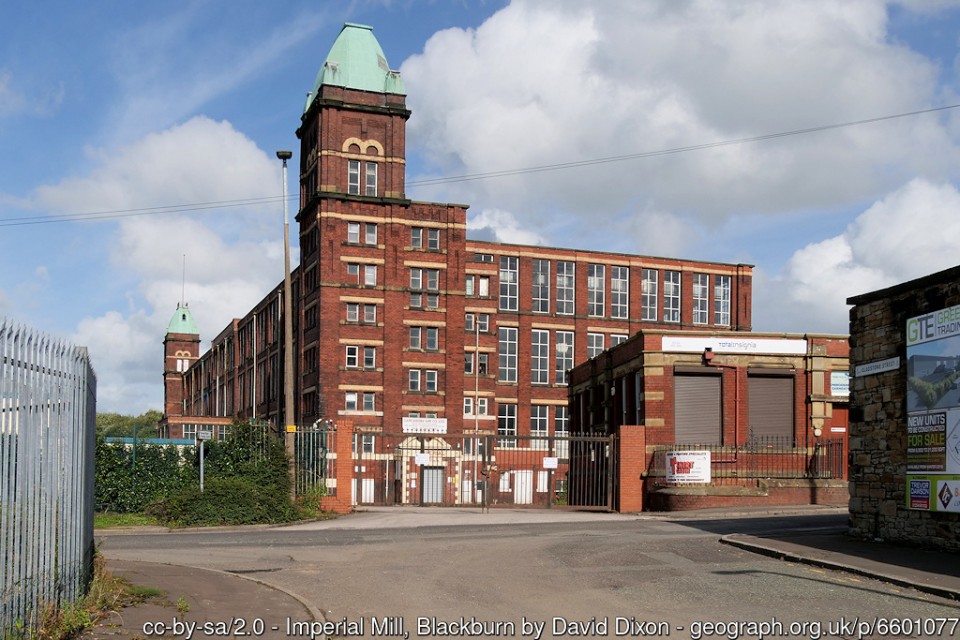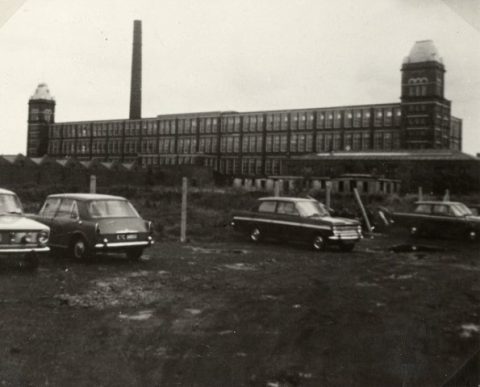
Published Thursday 2 February 2023 at 9:20
Blackburn with Darwen Council is seeking to buy a landmark mill in Blackburn – safeguarding its future for employment and new cultural opportunities.
The iconic Imperial Mill is home to the successful Lancashire Saw Company Limited, which employs 35 staff based over the first floor.
The owners are offering it for sale to the Council to help safeguard its future – opening it up to future restoration.
It’s in an important location in the borough too – closely linked to the council’s Blackburn Growth Axis, one of six plans to support its £1bn vision for the future.
Now, officers are seeking approval from the Council’s Executive Board to progress the sale.
Councillor Quesir Mahmood, Executive Member for Growth and Development, said:
This is a landmark building – an impressive and characterful former cotton spinning mill built at the turn of the 20th Century when ‘cotton was king.’
It’s an important part of the borough’s and wider Lancashire’s heritage – reflecting Blackburn’s identity and distinctiveness.
As a Council, it’s important that we do all we can to safeguard buildings like these where we can and use them to help create jobs for the future while also looking at improving our place and looking to make the most of cultural and environmental opportunities too.
The mill has already been identified as playing an important role in Super Slow Way’s impressive proposals for a new Linear Park – one of four proposed ‘cultural hubs’ – on the Leeds-Liverpool Canal running through Pennine Lancashire.
We’ve seen buildings like this successfully restored elsewhere and this is a fantastic opportunity to do something really good here too to secure its long term future.
When Imperial Mill was built in the early 1900s it was the only purpose built spinning mill in the town.
It was designed by architect Sydney Stott and cost in the region of £120,000.
By 1906-07, it housed 90,000 Howard and Bullough ring spindles – when spinning ceased in 1980 there were 33,000 spindles and 307 employees.
The building can be seen from Carl Fogarty Way – part of a key ‘growth corridor’ for the Council, which is working to create a more prosperous borough where no-one is left behind.

Councillor Mahmood added:
We’re a forward-thinking Council which has carved out a strong reputation for delivering growth.
We know that for our towns to be successful, we have to work hard to make the most of opportunities like this – creating new jobs and the potential of an attraction to be enjoyed by residents and visitors to the borough too.
Already we’ve successfully secured grant funding from the Government to help support this potential scheme – looking at what’s feasible at Imperial Mill.
Once we know more, we would look for further funding opportunities too – this is a big project and we’re focused on the long-term future of the site.
As part of the terms of the sale, the Lancashire Saw Company Ltd would be offered a 15 year lease – protecting the jobs there.
The sale would also include the gatehouse, home to a printing firm, and 1.5 hectares of land.
The Directors of Lancashire Saw Company Ltd said:
We are delighted to have come to an interim agreement with the council to purchase and develop Imperial Mill.
This will safeguard the future of Lancashire Saw Company Ltd and its employees for the foreseeable future and we are excited that the mill will be developed and restored whilst still being in situ.
We have been manufacturing in Blackburn for 80 years and purchased Imperial Mill in 1982.
Whilst we have been able to maintain the areas we use to keep them in good condition, we recognise that we are not in a position to safeguard the future of the entire building so the agreement with the council to develop and implement a longer-term restoration and development strategy for site is a perfect solution.
The proposals will be discussed at the Council’s Executive Board next week – you can read the report in full by clicking here.
You can also find out more about Imperial Mill at: www.cottontown.org
